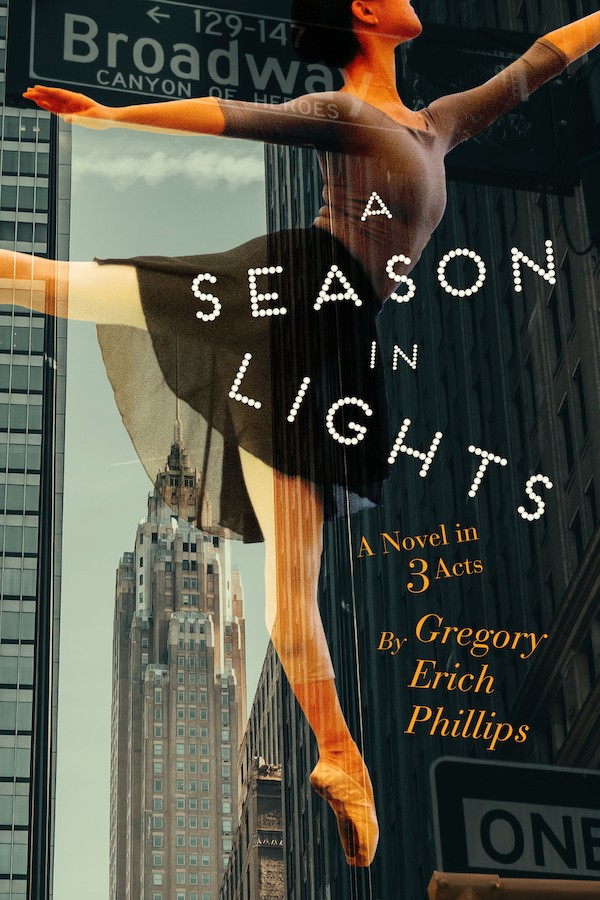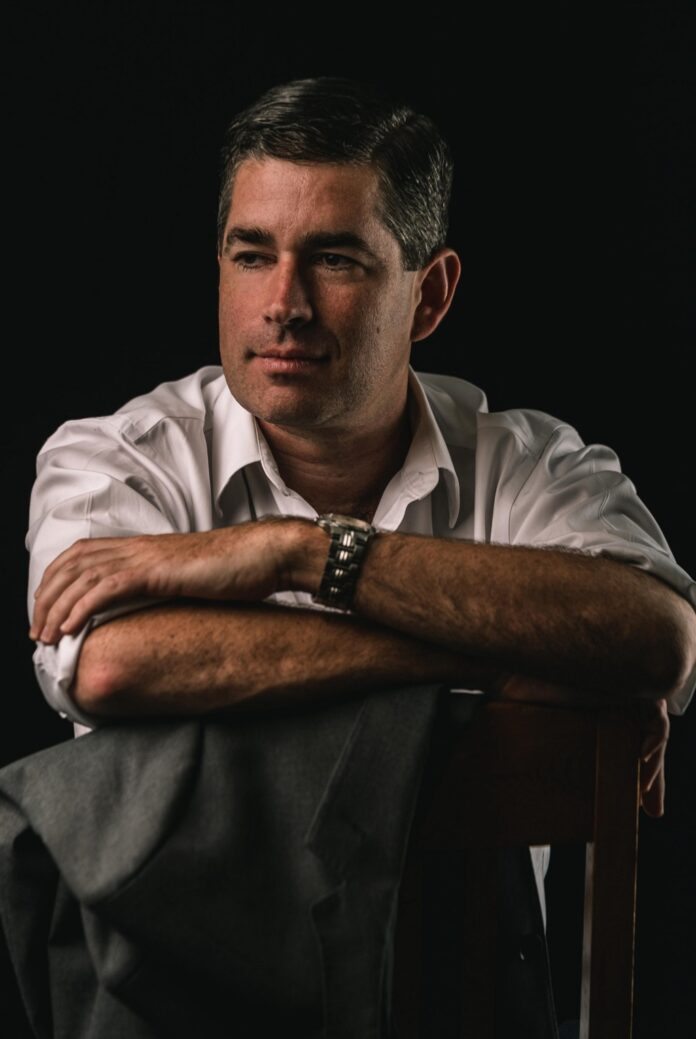An Interview With Edward Sylvan
…My hope is to foster a greater sense of empathy in my readers. In a time when constructive dialogue between various factions of American social and political culture has become nearly impossible, I believe it is the arts that have the greatest chance of bringing us together, broadening our perspectives and opening our hearts to each other.
As part of my series about “authors who are making an important social impact”, I had the pleasure of interviewing Gregory Erich Phillips.
From a prolific literary family, Gregory Erich Phillips writes aspirational stories through strong, relatable characters that transcend time and space. Readers frequently describe being transported into the world of his stories. His most recent novel, “A Season in Lights,” won the Grand Prize in the Somerset Awards, and was named the book of the year by The Write Review. This continuing the award-winning tradition of his first two novels, “Love of Finished Years” and “The Exile,” each of which won a major award. Gregory is also an accomplished tango dancer and musician.
Thank you so much for joining us in this interview series! Before we dive into the main focus of our interview, our readers would love to “get to know you” a bit better. Can you tell us a bit about your childhood backstory?
I’ve been a storyteller since I was a young boy. I wrote my first novel when I was 14. It was dreadful, but by doing it that young, I never had that block some new writers have where the prospect of writing a novel is so intimidating. Literature has remained my passion throughout my life.
When you were younger, was there a book that you read that inspired you to take action or changed your life? Can you share a story about that?
Within the topic of our discussion, John Steinbeck’s novels really opened my eyes to how fiction could have a social impact, and actually effect change in society. All of his novels are powerful in this regard, but I’ll mention in particular The Pearl, which is the best portrayal of systemic income inequality in fiction that I have ever read.
Can you share the funniest or most interesting mistake that occurred to you in the course of your career? What lesson or take away did you learn from that?
I mentioned how young I started writing. My main mistake when I was younger was overconfidence in my craft. Some of my early efforts were great stories with great characters. But they weren’t ready. The lesson was to separate myself from the emotion you naturally have with your own work and look at my novels with more of an outside eye.
Can you describe how you aim to make a significant social impact with your books?
I have always believed that story has the power to change hearts in a way that few other mediums can compare. That is because in a story — novel, movie, on stage — the reader or viewer is transported into the experiential reality of a character. What’s more, people allow themselves to be transported in a way they never would if reading a biography or watching a documentary. Because of this, I believe strongly in the novel as an art form that can have a powerful social impact. As a novelist, I have taken this to heart. While all three of my novels are, first and foremost, meant as enjoyable stories — entertainment — in each one I tried to show my readers a social perspective of which they might not have been aware. In so doing, my hope is to foster a greater sense of empathy in my readers. In a time when constructive dialogue between various factions of American social and political culture has become nearly impossible, I believe it is the arts that have the greatest chance of bringing us together, broadening our perspectives and opening our hearts to each other.
Can you share with us the most interesting story that you shared in your book?
My latest novel, A Season in Lights, focuses on dancers and musicians working off-Broadway in New York City. I have performed as a dancer for years in smaller stage shows much like the ones described in the novel. While I didn’t re-tell any specific stories from my own experiences, I tried to bring the flavor of that world, especially the unseen backstage world, into the book, to give the readers a glimpse of something they may never see in real life.

What was the “aha moment” or series of events that made you decide to bring your message to the greater world? Can you share a story about that?
You know, my aha moment really came as I was writing my second published novel, The Exile, in 2016. You’ll remember during that election cycle and after, how there was extreme vitriol in certain sectors toward Hispanic and Middle Eastern immigrants. The Exile is about a Latin American immigrant. After that election, I rushed to get the book finished and into editorial as quickly as possible, for the exact reasons outlined above. That by reading a fictionalized immigrant account, it might give readers more empathy toward such people, whom they might not know personally. Interestingly, my first novel, Love of Finished Years, also focuses on the American immigrant experience, though in a very different way. Clearly, this is an issue close to my heart.
Without sharing specific names, can you tell us a story about a particular individual who was impacted or helped by your cause?
A Season in Lights was very meaningful to several close friends of mine working in the performing arts, to give voice to the kind of emptiness felt when the pandemic shut down everything that they held dear. Simply giving voice to those emotions in a work of art can help people with the same experiences not to feel so alone.
Are there three things the community/society/politicians can do to help you address the root of the problem you are trying to solve?
Empathy, Humility, Unity. These three virtues would absolutely transform society if adopted by politicians and community leaders.
How do you define “Leadership”? Can you explain what you mean or give an example?
The most effective leadership is through example. Being a person who embodies the values you want to see in the world. That kind of leadership is contagious. It draws people in. Action and integrity are far more powerful than words. This is also why I gravitate toward fiction writing, because characters can be powerful tools for showing true leadership
What are your “5 things I wish someone told me when I first started” and why. Please share a story or example for each.
I’m going to approach this a little differently since I had a wealth of good advice when I first started writing. My dad was a successful novelist so he really set me on a good course as I started out. So instead I’ll say five things I’d like to tell other young authors who are just starting out.
First, approach your craft as a writer like you would any new skill. It takes practice, patience, repetition. Learning to write well is not so different from learning to play an instrument. It takes years. You would not expect to be proficient at a new instrument after a year, even two even five. I see that in my own development as a writer. It’s unlikely that your first attempt at a novel will be your masterpiece. So keep writing and keep learning.
Second, editors are your friends. Absorb all the lessons you can from editors. I have learned so much from the feedback I’ve received from my editors, lessons I take into my next projects and that makes me a better author.
Third, involve yourself in the author community. Writing can be a lonely career, and it is often frustrating, even defeating. Having a community makes it feel less so, and it is also valuable to share ideas and experiences. I have found the author community incredibly supportive and uplifting.
Fourth, never stop reading. I learn so much from noticing the way other authors approach their craft. In times when I’m not feeling all that inspired, I’ll use the time I would have been writing and read. Every book you read can be like a writing workshop if you are really paying attention to what you’re reading.
Fifth, write for yourself because you have a story to tell. Don’t write for anyone else, don’t write for an audience. The readers will come to you if you write your story from your heart.
Can you please give us your favorite “Life Lesson Quote”? Can you share how that was relevant to you in your life?
One quote that has been really meaningful to me, during the events of the last couple of years, is from one of my very favorite authors, Jeanette Winterson. “Why is it that the important things are so often mislaid under things that hardly matter at all?” It’s a good reminder of how we can get caught up in the minutia of life at the expense of things like human connection, community participation, beauty, even our own personal peace.
Is there a person in the world, or in the US with whom you would like to have a private breakfast or lunch with, and why? He or she might just see this, especially if we tag them. 🙂
Richard Power. I marvel at the tapestry he weaves in his novels and would live to get a glimpse into how his brain works.
How can our readers further follow your work online?
Information about all my books and purchase links are on my website, www.gregoryerichphillips.com. You can also follow me on Facebook/gregoryerichphillips and Instagram/gregoryerichphillips.
This was very meaningful, thank you so much. We wish you only continued success on your great work!
Social Impact Authors: How & Why Novelist Gregory Erich Phillips Is Helping To Change Our World was originally published in Authority Magazine on Medium, where people are continuing the conversation by highlighting and responding to this story.


